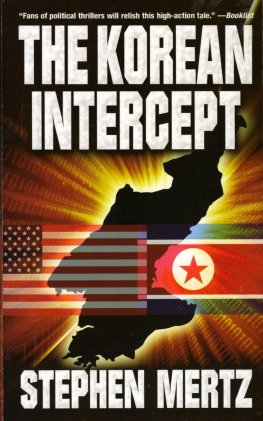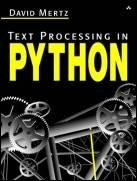Stephen Mertz - The Korean Intercept
Here you can read online Stephen Mertz - The Korean Intercept full text of the book (entire story) in english for free. Download pdf and epub, get meaning, cover and reviews about this ebook. genre: Detective and thriller. Description of the work, (preface) as well as reviews are available. Best literature library LitArk.com created for fans of good reading and offers a wide selection of genres:
Romance novel
Science fiction
Adventure
Detective
Science
History
Home and family
Prose
Art
Politics
Computer
Non-fiction
Religion
Business
Children
Humor
Choose a favorite category and find really read worthwhile books. Enjoy immersion in the world of imagination, feel the emotions of the characters or learn something new for yourself, make an fascinating discovery.
- Book:The Korean Intercept
- Author:
- Genre:
- Rating:5 / 5
- Favourites:Add to favourites
- Your mark:
- 100
- 1
- 2
- 3
- 4
- 5
The Korean Intercept: summary, description and annotation
We offer to read an annotation, description, summary or preface (depends on what the author of the book "The Korean Intercept" wrote himself). If you haven't found the necessary information about the book — write in the comments, we will try to find it.
The Korean Intercept — read online for free the complete book (whole text) full work
Below is the text of the book, divided by pages. System saving the place of the last page read, allows you to conveniently read the book "The Korean Intercept" online for free, without having to search again every time where you left off. Put a bookmark, and you can go to the page where you finished reading at any time.
Font size:
Interval:
Bookmark:
Stephen Mertz
The Korean Intercept
Prologue
The near future, 107 miles above the earth
With no external point of reference to mark its dimensions and speed, the space shuttle Liberty looked like a gently coasting bird of flawless white caught between the stars of frigid dark space overhead and the mottled white and azure curved horizon of the earth below. In fact, the 100,000-ton, 122-foot orbiter was descending at a rate of more than 17,000 miles per hour, twenty-five times the speed of sound. Traveling west to east, the sleek, winged vessel lost some of its gleam as the sun dipped beyond the horizon and the earth below grew dark, though not as black as the endless vista of space. Liberty was one of six workhorses of the NASA shuttle program and had flown twelve previous missions. The crew on this flight was composed mostly of electrical and aerospace engineers who had worked on and were to deploy, at 430 miles in space, the defense system satellite carried in the orbiter's payload cargo area. After deploying the satellite, Liberty had been scheduled to remain in orbit for five days in order to repair and service other defense and communications satellites. But it was not to be. The mission had been aborted within fifteen minutes of liftoff.
On Liberty's flight deck, a cockpit-like cabin filled with control panels, Commander Ron Scott tried to ignore the quivers of foreboding that had been nagging at his subconscious ever since Houston had ordered the abort. That wasn't all ground control had ordered. They had also instructed him to activate the shuttle's Stealth radar avoidance system and to maintain radio silence throughout the return trip.
Scott was a seventeen-year veteran of the space program. He was six-foot-one and sturdily built, forty-six years old. This was his third mission into space and his first as flight commander. Since his days as a Gulf War combat pilot, he had logged 65,000 hours of flying in forty-five types of airplanes, but nothing matched the thrill of handling Liberty. Not that he'd had much of an opportunity this time out.
Shuttle Flight 72-L had pushed off the launch pad and cleared the tower at Cape Canaveral into a cloudless blue Florida sky on schedule. Two minutes and five seconds later, moving at a speed of 2,000 miles per hour, separation from the solid rocket booster was reported to Mission Control. At an altitude of eighty miles, the computers had given the command for the main engines to shut down and the spent big orange-red fuel tank had separated and plunged back to earth to splash down harmlessly in a remote corner of the Pacific. Scott had then taken over manual control to position the shuttle for the first of a series of insertion burns intended to eventually position Liberty into its assigned orbit. The computer was to control forty-five minutes of coasting prior to a second firing of the Orbital Maneuvering System rockets, but before that could happen, the order to abort and black out communications was received and verified. After reprogramming the computers for reentry, there was little left for Scott to do except try to ignore that troubling sense of foreboding.
Fifteen minutes after reprogramming the computers, he and his copilot, Kathleen Daniels (known to one and all as Kate), sat monitoring the systems indicators and screens in the center of the main panel, when they experienced a slight but sudden lurch as the OMS secondary engines burned for another forty seconds, dramatically slowing the shuttle's speed.
Scott's frustration surfaced with a curse. "Now what the hell? That deorbit burn is twenty minutes ahead of schedule. Don't tell me we've got a computer error on our hands."
"Maybe that's why Houston is bringing us home," Kate said. She tapped a computer keyboard to call up details of the problem. "Negative," she reported. "All three navigation and guidance computers agree."
Scott was married and he loved his wife, but he wasn't blind and he knew that if his Lucy had been the jealous type-which, happily, she wasn't-she'd have been plenty jealous with a looker like Kate along as his copilot for five days in space. Kate looked younger than her thirty-six years. Shoulder-length chestnut hair framed a high-cheekboned magazine model's face highlighted by intelligent brown eyes, full lips and a determined jawline. The bagginess of her light blue coverall flight suit did nothing to conceal a full, firm figure that could have belonged to a magazine model of the centerfold variety. And yet there was nothing flirtatious or provocative about Kate. She was a total professional.
"I'm going to the backup." Scott punched a request for navigation data from the backup computer, then shook his head in bewilderment when the monitors registered identical information. "Something stinks," he grumbled. "We've deviated way off our approach course. Even the backup shows us coming down jeez, we're not over Australia, we're somewhere over Africa! Our approach is supposed to bring us in over Hawaii. At this rate, we'll be hitting the atmosphere somewhere over the Mediterranean."
Kate stared intently at the systems indicators. "I don't understand."
"That makes two of us. And us told to come in under radio silence." Scott looked out his side window. The sight below of the night-shrouded half of the earth only deepened his sense of foreboding. "Something must have gone to hell in a handbasket down there, like World War III. Or someone in Houston is smoking something funny."
"Radar and navigation indicators say we'll be touching down in northern Japan. Why would Houston be diverting us there?"
"I don't know. Let's just sit tight and follow orders for the time being, but we'll stand by to take over manual control."
The disappointment that welled within Kate became an ache that she hoped did not show. Her first mission into space and it was over before it began, and this could be the only chance she would get. There was no shortage of astronauts in the program and many, most, spent their whole careers on standby, waiting for a chance that never came. Yesterday, the first scheduled liftoff was cancelled at T-minus-three seconds when a heat sensor mistakenly signaled that one of Liberty's three main engines was overheating. That had actually been reassuring after the initial letdown, because it had demonstrated that NASA was not about to send them up unless everything was perfect. It was impossible not to remember Challenger, not to be acutely aware that you were sitting atop a monster, totally at the mercy of the vehicle. The solid rocket boosters were filled with 1.1 billion pounds of solid fuel. The external fuel tank contained 529,000 gallons of liquid oxygen and liquid hydrogen. Six seconds before liftoff, those highly explosive fuels flowed through seventeen-inch aluminum fuel lines into the shuttle's main tank and, once ignited, the fuel burned until it was used up. No, it was impossible to forget the space shuttles Columbia and Challenger. Then, this morning, less than ninety minutes ago, when the countdown was not interrupted and Liberty had been catapulted into that cloudless Florida sky on 2.9 million pounds of thrust, Kate had experienced a kind of transcendent soaring of the spirit beyond any sensation she had ever known.
And now-this.
Beside her, Scott was advising the other crewmembers across the intercom of the change in plans. Any indication of overt concern or any other emotion was masked behind his professional cool. There were grumbled complaints and protestations from Leo Smith, Al Murphy, Terri Schmidt and Bob Paxton, who rode in the living quarters just forward of the payload bay, but with their frustrations vented, all six of Liberty's crew lapsed into silence.
Kate took no comfort, as she usually did, in the magnificent drone of the shuttle in flight. She told herself that there had to be some explainable reason behind what was happening and that Houston Control would reveal it to them in due course.
Font size:
Interval:
Bookmark:
Similar books «The Korean Intercept»
Look at similar books to The Korean Intercept. We have selected literature similar in name and meaning in the hope of providing readers with more options to find new, interesting, not yet read works.
Discussion, reviews of the book The Korean Intercept and just readers' own opinions. Leave your comments, write what you think about the work, its meaning or the main characters. Specify what exactly you liked and what you didn't like, and why you think so.












